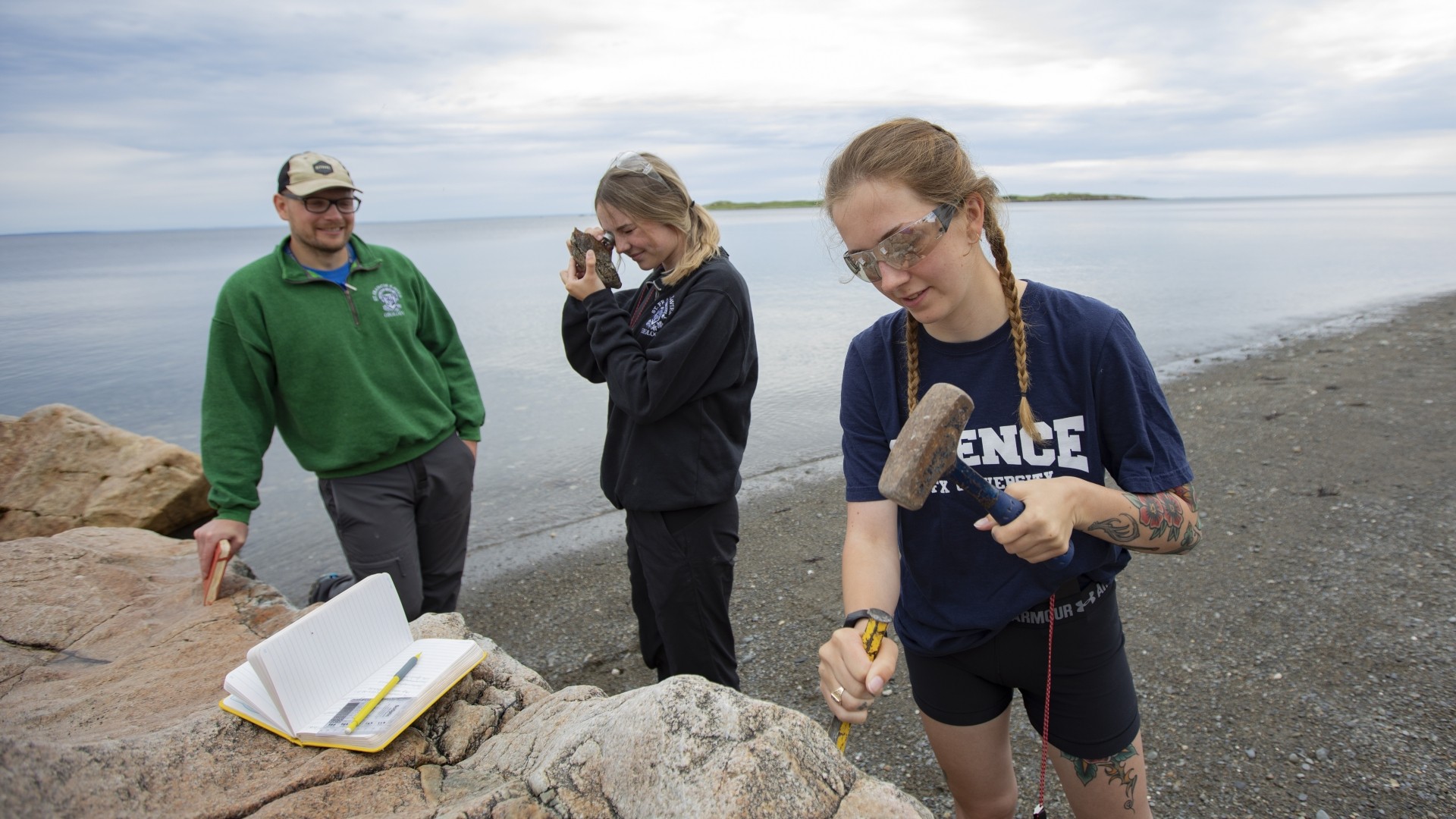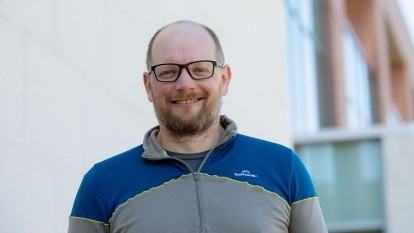
StFX’s Dr. Donnelly Archibald, the successful applicant on a $1.322 million NSERC Alliance Missions grant, is working to gain a better understanding of the geology of rocks on a remote stretch of coast in southern Newfoundland where recent lithium discoveries, a mineral essential to global carbon-free energy technology, have stimulated new exploration efforts.
Dr. Archibald, a lab instructor and adjunct professor in StFX’s Department of Earth and Environmental Sciences, is leading the three-year project funded through NSERC’s special call for critical minerals research program.
As the world tries to transition from fossil fuels, it’s important to find alternatives. Lithium is currently one of these alternatives.
The recent discovery is the first in Newfoundland. However, fundamental aspects of the geology of these lithium resources remain unknown, including the mineralogy, age, extent, structural controls, lithium sources, and economic potential.
“Our research objective is to better understand the geological controls on formation and upgrading of lithium-rich rocks in southern Newfoundland to better inform mining and exploration targeting practices and promote lithium discovery,” Dr. Archibald says.
He says addressing this primary objective requires a multidisciplinary and holistic investigation into the lithium source(s) as well as the processes controlling the transport of lithium from its source to host rocks, the emplacement processes that resulted in the formation of these rocks, deformation that controls the present expression of lithium-rich rocks, and the character and extend of associated alteration haloes.
The project includes an academic alliance between StFX University and Memorial University of Newfoundland (Drs. David Lowe and Eric Thiessen); three industry partner organizations, including Newfoundland-based companies, Sokomon Minerals Corp. and Benton Resources Inc., and U.S.-based Piedmont Lithium; and the provincial government of Newfoundland and Labrador, through the Geological Survey of Newfoundland and Labrador (Dr. James Conliffe.)
“This successful NSERC Alliance Missions grant is a significant success for Dr. Donnelly Archibald,” says Dr. Richard Isnor, Associate Vice President Research Graduate and Professional Studies. “These collaborative grants are aimed at addressing critical science needed for Canada’s economy and are highly competitive, underscoring the strength of Dr. Archibald’s research.”
The team, led by Dr. Archibald, is studying a region along the south coast of Newfoundland, located about 20-30 kilometres north of the town of Burgeo. The study area is only accessible by helicopter.
Lithium was discovered in the rocks here in 2021. The geology area was mapped in the 1970s or 1980s, but no one has conducted detailed studies on the rocks.
This was the first lithium discovery in Newfoundland. Cesium, a chemical element used mostly in cesium formate brines which assist in the drilling of high temperature and pressure oil and gas production wells, laser technologies, and X-ray irradiation for cancer treatment, was also discovered, a first in Atlantic Canada. Currently there are no active lithium mines in Atlantic Canada.
The project’s industry partners, who own the mineral rights, are trying to determine how much lithium is present to assess the economic value of the property. Dr. Archibald is trying to help them understand why the lithium-rich rocks are present in southern Newfoundland.
The NSERC grant builds on existing work.

Dr. Archibald had already been working to document the minerals in these lithium-bearing rocks and to understand how they formed after the Newfoundland government approached him to work on the project in 2022. Together with company partners, they applied for and received $100,000 in funding from the Natural Resources Canada Targeted Geoscience Initiative program. That work is still ongoing.
This new funding will allow them to look at the complete story.
“This has the potential to be a great economic driver for southern Newfoundland and Atlantic Canada as a whole,” says Dr. Archibald, who is excited for the opportunity to work on the first lithium discovery in Newfoundland, to collaborate with both government and industry partners, and the opportunity to bring in new students to StFX.
Currently, two master’s students and a PhD student are working on the project and Dr. Archibald sees the potential for more students to become involved.
He says the project will train several highly qualified personnel in field methods, data collection techniques, and scientific communication, highly sought after skills required for qualified geoscientists to have capacity to undertake mineral exploration and geoscience research on critical mineral systems in Canada.
Additionally, the NSERC funding includes money for research equipment, which StFX will have in-house.

